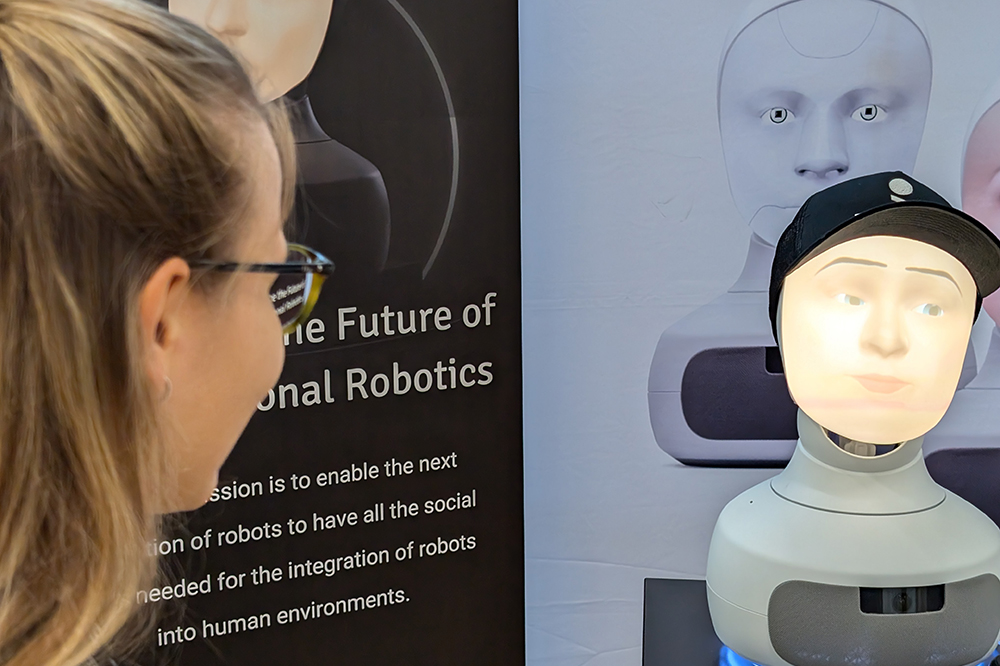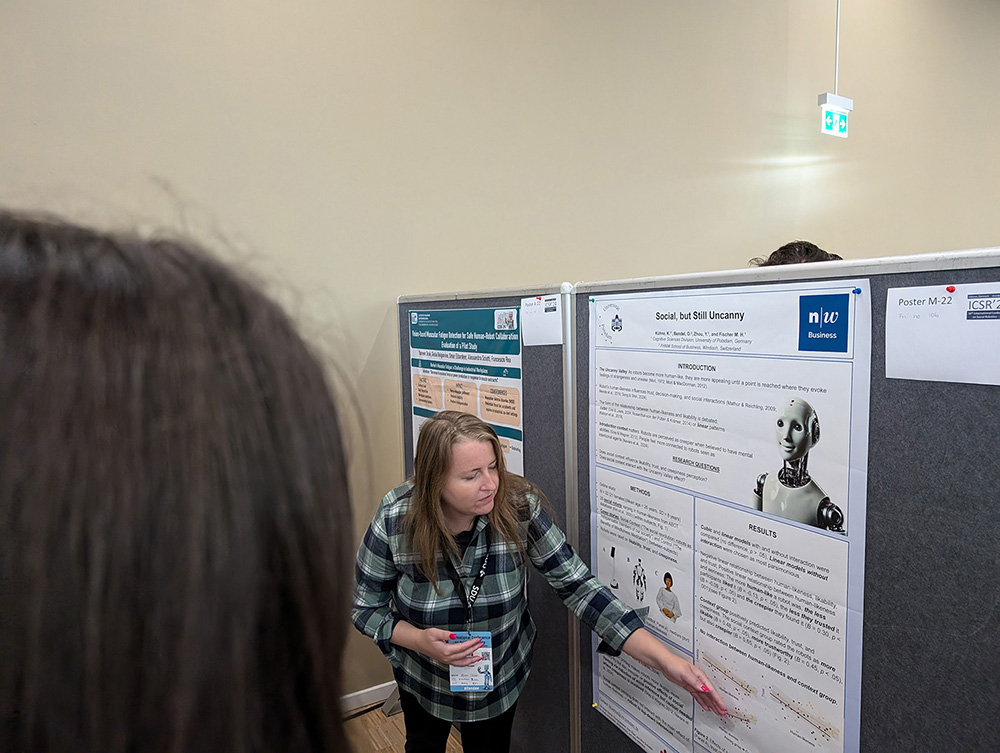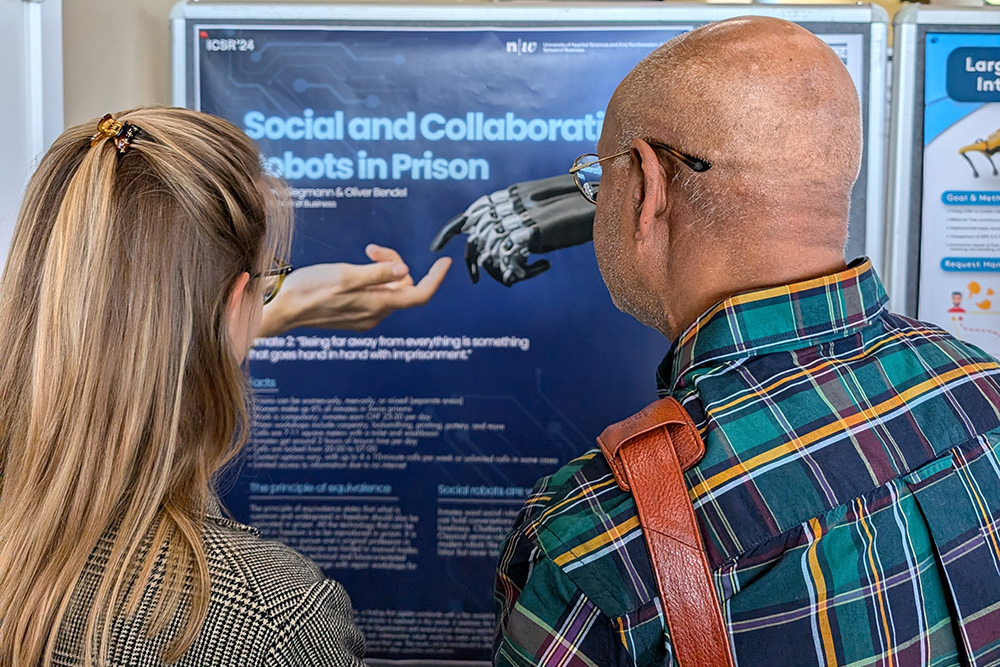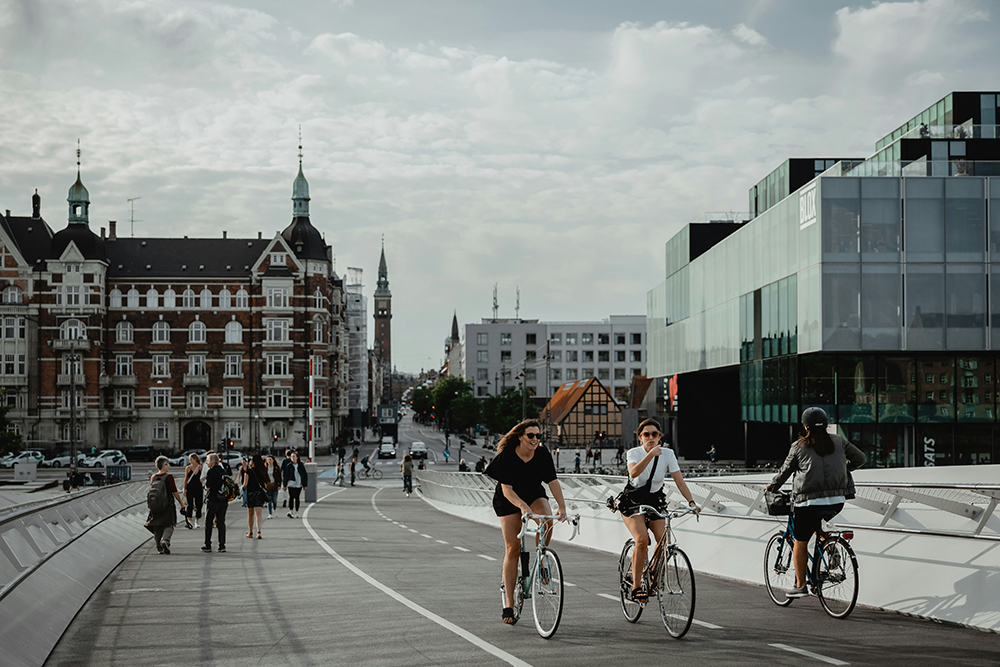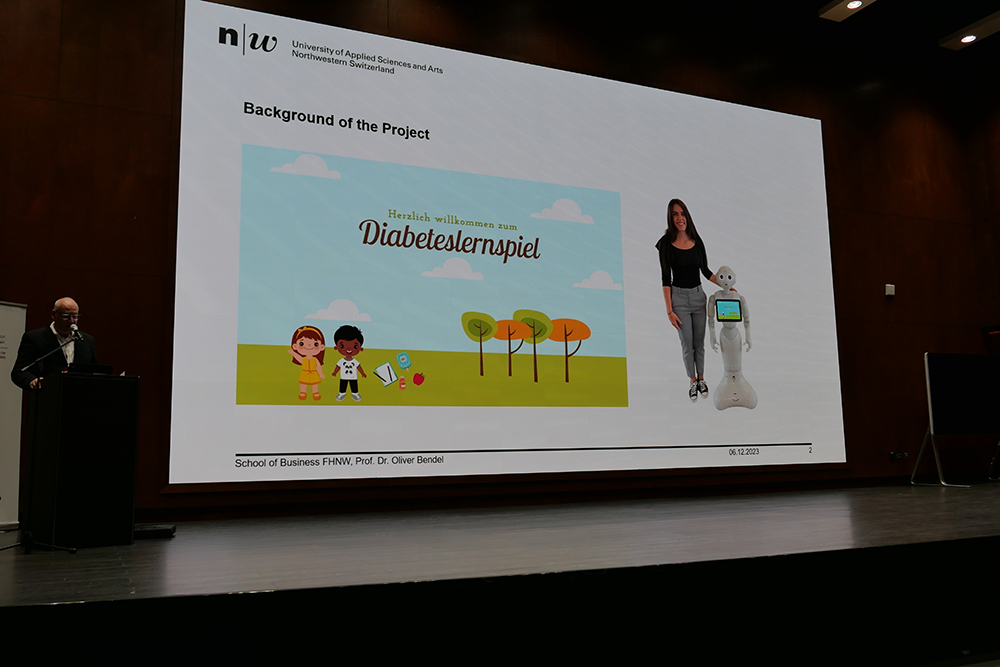ICSR is one of the leading conferences for social robotics worldwide. The 17th edition will take place from 10 to 12 September 2025 in Naples, Italy. Participants will meet for two days at the Parthenope University of Naples and for the third day at the Città della Scienza conference center. In 2023, the conference took place in Doha, Qatar. A video on YouTube by Hooman Samani provides insights into the presentations and events: www.youtube.com/watch?v=MtgM8pTPw8c … It not only shows that numerous top-class presentations take place, but also that the members of the community are highly motivated and have a lot of fun. The high level of internationality and diversity of the conference should also be emphasized. The conference website of ICSR 2025 is online since January: icsr2025.eu.
A Video About the ICSR 2024
ICSR is one of the leading conferences for social robotics worldwide. The 17th edition will take place from 10 to 12 September 2025 in Naples, Italy. Participants will meet for two days at the Parthenope University of Naples and for the third day at the Città della Scienza conference center. In 2024, the conference took place in Odense, Denmark. A video on YouTube by Hooman Samani provides insights into the presentations and events: www.youtube.com/watch?v=Xj6p2yguYBk … It not only shows that numerous top-class presentations take place, but also that the members of the community are highly motivated and have a lot of fun. The high level of internationality and diversity of the conference should also be emphasized. The conference website of ICSR 2025 is online since January: icsr2025.eu.
The Uncanny Social Robot
The uncanny valley effect is a famous hypothesis. Whether it can be influenced by context is still unclear. In an online experiment, Katharina Kühne and her co-authors Oliver Bendel, Yuefang Zue, and Martin Fischer found a negative linear relationship between a robot’s human likeness and its likeability and trustworthiness, and a positive linear relationship between a robot’s human likeness and its uncaniness. “Social context priming improved overall likability and trust of robots but did not modulate the Uncanny Valley effect.” (Abstract) Katharina Kühne outlined these conclusions in her presentation “Social, but Still Uncanny” – the title of the paper – at the International Conference on Social Robotics 2024 in Odense, Denmark. Like Yuefang Zue and Martin Fischer, she is a researcher at the University of Potsdam. Oliver Bendel teaches and researches at the FHNW School of Business. Together with Tamara Siegmann, he presented a second paper at the ICSR.
Robots in Prison
On October 22, 2024, Tamara Siegmann and Prof. Dr. Oliver Bendel (School of Business FHNW) presented their project “Robots in Prison” at the ICSR in Odense (Denmark). They investigated whether collaborative and social robots can and should be used in prisons. One result was that modern industrial robots such as cobots and classic service robots such as transportation and cleaning robots hardly create any added value. Instead, they take work away from inmates. In contrast, social robots are conceivable and useful. They bring something to imprisonment that is common in freedom. And – an important point for resocialization – they can combat the loneliness of inmates. The International Conference on Social Robotics is the most important conference for social robotics alongside Robophilosophy. The paper “Social and Collaborative Robots in Prison” will be published in a proceedings volume by Springer at the end of the year.
Extended Deadline for ICSR 2024
The deadline for the International Conference on Social Robotics 2024 (ICSR 2024) has been extended. Experts in social robotics and related fields have until July 12 to submit their papers. The prestigious event was last held in Florence (2022) and Qatar (2023). Now it enters its next round. The 16th edition will bring together researchers and practitioners working on human-robot interaction and the integration of social robots into our society. The title of the conference includes the addition “AI”. This is a clarification and demarcation that has to do with the fact that there will be two further formats with the name ICSR in 2024. ICSR’24 (ICSR + AI) will take place as a face-to-face conference in Odense, Denmark, from 23 to 26 October 2024. The theme of this year’s conference is “Empowering Humanity: The role of social and collaborative robotics in shaping our future”. The topics of the Call for Papers include “collaborative robots in service applications (in construction, agriculture, etc.)”, “Human-robot interaction and collaboration”, “Affective and cognitive sciences for socially interactive robots”, and “Context awareness, expectation, and intention understanding”. The general chairs are Oskar Palinko, University of Southern Denmark, and Leon Bodenhagen, University of Southern Denmark. More information is available at icsr2024.dk.
Creative Robotics Theatre
ACM Designing Interactive Systems 2024 (DIS 2024) will be held from 1-5 July 2024 at IT University, Copenhagen, Denmark. The Call for Papers for the Creative Robotics Theatre workshop is open to workshop papers, videos, pictorials, design explorations and performances. The roboticist and artist Hooman Samani is one of the organizers. He calls for participation on his website: “Join us at DIS 2024 for an innovative workshop exploring the confluence of robotics, theatre, and societal change. We are seeking artists, technologists, researchers, and practitioners interested in pushing the boundaries of Creative Robotics Theatre to enhance societal well-being and address global challenges.” (Website Hooman Samani) Topics of interest include creative robotics theatre, robotics performance, embodied and tangible interfaces and performances, and performance with embodied objects. The deadline for submissions is 15 May 2024. Further information on the workshop is available at hoomansamani.com.
ICSR + BioMed 2024
In addition to the ICSR in Odense, which focuses on social robotics and artificial intelligence, there is also the ICSR in Naples this year, which organizes a robot competition. In addition, an ICSR conference focusing on biomedicine and the healthcare sector will take place in Singapore from August 16-18, 2024. The website states: “The 16th International Conference on Social Robotics + BioMed (ICSR + BioMed 2024) focuses on interdisciplinary innovation on Bio-inspired, Biomedical, and Surgical Robotics. By fostering the much-needed merging of these disciplines, together with fast emerging Biotech, the conference aims to ensure the lesson learned from these communities blend to unleash the real potential of robots. … The conference will serve as the scientific, technical, and business platform for fostering collaboration, exploration, and advancement in these cutting-edge fields. It will showcase the latest breakthroughs and methodologies, shaping the future of robotics design and applications across several sectors including Biomedical and healthcare.” (Website ICSR) Papers must be submitted by June 5, 2024. Further information on the conference is available at robicon2024.org.
ICSR’24 in Odense, Denmark
The prestigious International Conference on Social Robotics was last held in Florence (2022) and Qatar (2023). Now it enters its next round. The 16th edition will bring together researchers and practitioners working on human-robot interaction and the integration of social robots into our society. The title of the conference includes the addition „AI“. This is a clarification and demarcation that has to do with the fact that there will be two further formats with the name ICSR in 2024. ICSR’24 (ICSR + AI) will take place as a face-to-face conference in Odense, Denmark, from 23 to 26 October 2024. ICSR’24 will take place as a face-to-face conference in Odense, Denmark, from 23 to 26 October 2024. The theme of this year’s conference is “Empowering Humanity: The role of social and collaborative robotics in shaping our future”. The topics of the Call for Papers include “collaborative robots in service applications (in construction, agriculture, etc.)”, “Human-robot interaction and collaboration”, “Affective and cognitive sciences for socially interactive robots”, and “Context awareness, expectation, and intention understanding”. The general chairs are Oskar Palinko, University of Southern Denmark, and Leon Bodenhagen, University of Southern Denmark. More information is available at icsr2024.dk.
Second Volume of ICSR Proceedings
The proceedings of ICSR 2023 were published at the beginning of December 2023. The second volume contains the article “Pepper as a Learning Partner in a Children’s Hospital” by Sara Zarubica and Oliver Bendel. From the abstract: “Social robots are increasingly used in learning settings. So far, the main focus of this has been in school lessons and teaching at universities. Another possible setting is the children’s hospital. There, for example, young patients need to acquire basic knowledge about their disease so that they can deal with it appropriately. This should be done in a joyful, fun way, as the situation is stressful enough in itself, and so learning is also facilitated. The paper presents a learning application for diabetic children that runs on Pepper. This social robot was particularly well suited for this task because it has a large integrated touchscreen, similar to a tablet. A learning game is displayed on it that was developed especially for this setting. The children have to estimate the carbohydrate values of foods and meals or answer knowledge questions. The social robot gives verbal and gestural feedback in each case. The subjects responded overwhelmingly positively to the learning application. Pepper’s visible and audible feedback plays a special role in this. Social robots like Pepper are an interesting solution for knowledge transfer in a children’s hospital.” The volume can be downloaded or ordered via link.springer.com/book/10.1007/978-981-99-8715-3.
First Volume of ICSR Proceedings
The proceedings of ICSR 2023 were published at the beginning of December 2023. The first volume contains the article “Alpha Mini as a Learning Partner in the Classroom” by Oliver Bendel and Andrin Allemann. From the abstract: “Social robots such as NAO and Pepper are being used in some schools and universities. NAO is very agile and therefore entertaining. Pepper has the advantage that it has an integrated display where learning software of all kinds can be executed. One disadvantage of both is their high price. Schools can hardly afford such robots. This problem was the starting point for the project described here, which took place in 2023 at the School of Business FHNW. The aim was to create a learning application with an inexpensive social robot that has the same motor capabilities as NAO and the same knowledge transfer capabilities as Pepper. The small Alpha Mini from Ubtech was chosen. It was possible to connect it to an external device. This runs a learning game suitable for teaching at primary level. Alpha Mini provides explanations and feedback in each case. Three teachers tested the learning application, raised objections, and made suggestions for improvement. Social robots like Alpha Mini are an interesting solution for knowledge transfer in schools when they can communicate with other devices.” The volume can be downloaded or ordered via link.springer.com/book/10.1007/978-981-99-8715-3.

